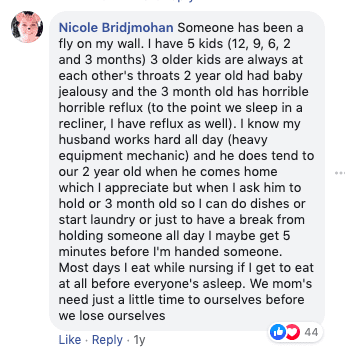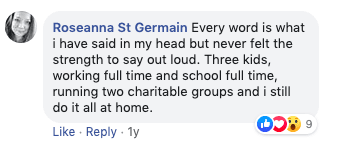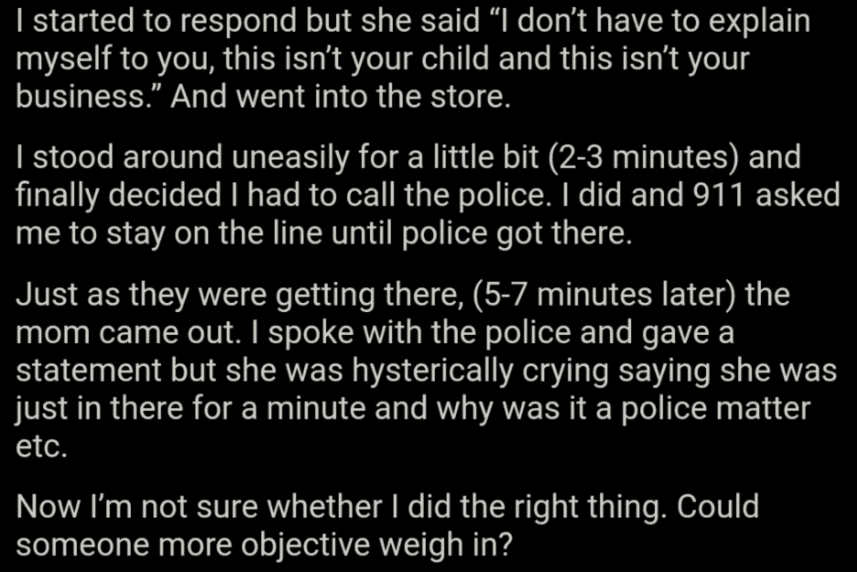Parents who are readers (like me) use so many hours of our lives when our babies are young to read to them. We buy them books, do the voices, and pray that one day, they will love to read, too.
There are so many things vying for our kids’s attention these days, though, that sometimes, despite our best efforts, reading isn’t at the top of our kids’s list of priorities.
Father David Woodland thought he’d found the perfect solution by paying his son $1 for every book he reads. Dad gets his son reading, and so what if the kid thinks he’s making out big time?
We pay my oldest $1 every time he reads a book. We’re talking 160 page chapter books.
I’m out $120 this year and he thinks he’s ripping me off. Best investment ever.
— David Woodland (@DavidSven) July 17, 2020
Everyone’s happy.
Well, it turns out that after David’s tweet racked up half a million likes and caught like wildfire on Reddit, that’s not exactly true.
Some people think he’s wrong to pay his kid to read, and also brought up arguments like he should be reading to his child, as well (even though he never said he didn’t).
But are you reading to him too. That’s also important.
— Common Sense (@Linc6080Common) July 19, 2020
Others suggested he was teaching his son that he should get paid for the things he should do anyway.
How do you explain to him that he has to do chores and volunteer and do dozens of other basic life duties without payment?
— Jake REI (@jkostecki_rei) July 18, 2020
There was apparently some study that showed if you pay kids to do something, they’ll stop doing it without the money.
I just heard an NPR podcast today that talked about the idea of paying kids to do things they should be doing anyway. It is a topic that’s been studied, basically it removes the motivation to do the task. So once you stop paying them, they won’t do it anymore.
— Theresa Daudier (@TDaudier) July 18, 2020
And some suggested he try instilling “a love of reading” instead of a love of money.
Artificial incentives. This kills the joy of learning. Makes it transactional. Please try to teach the joy of learning instead ( intrinsic )
— Bruno Larvol
(@brunolarvol) July 18, 2020
There were people who defended the choice, suggesting that the money would get them started, and hopefully a love of the thing would follow.
I respectfully disagree. I believe paying them is a good incentive to get them started. Eventually, with everything they are learning, they will develop the love for reading and searching new ideas.
— Fonzi • Content Is Profit (@luiscamejov) July 17, 2020
Including some with fancy degrees.
I’m a clinical child psychologist and this is a great tactic. The best thing for reading is reading, and once you’re used to reading, it becomes a habit. Don’t worry about intrinsic motivation – books are their own motivators. Anyone who says otherwise doesn’t understand learning
— Dr.Koslowitz_ParentingPsychology (@KoslowitzDr) July 19, 2020
And others who agree that one thing can easily lead to another, and not always in a bad way.
Extrinsic motivation can lead to intrinsic motivation. If we all knew the secret key to developing motivation there wouldn’t be multiple competing (and directly oppositional) theories on it.
— Vincent G. Salton (@RobertEHugh) July 18, 2020
As for David, he never expected things to go viral, and he’s taking all of the unsolicited advice and feedback in stride.
He told Bored Panda that he thinks the $1 per book is a great investment, and that he’d be willing to pay him the same forever, if it keeps him reading.
“If the rate stays at only $1, I would fund it for life if it kept working! The benefits of reading a book can change people’s lives.”
Amen, sir, and keep up the good work.
Let’s all take a page from David’s book, too, and remember to take other people’s opinions on how we raise our kids with a grain of salt.
Easier said than done, but we can try!
The post People Are Divided on a Dad’s Decision to Pay His Son to Read Books appeared first on UberFacts.



 Сон вашего ребенка важен не только для него, но и для всей семьи!
Сон вашего ребенка важен не только для него, но и для всей семьи! Принимая 1 мг клинически изученного мелатонина в каждой таблетке от Zarbee's, вы можете помочь малышу заснуть, не формируя привыкания.
Принимая 1 мг клинически изученного мелатонина в каждой таблетке от Zarbee's, вы можете помочь малышу заснуть, не формируя привыкания.  Мелатонин
Мелатонин Способствует спокойному сну
Способствует спокойному сну


 Без лекарств и спирта
Без лекарств и спирта 
 Доставка по Украине в течении 10-14 дней
Доставка по Украине в течении 10-14 дней  Если товара нет в наличии – оформляем предзаказ
Если товара нет в наличии – оформляем предзаказ  Для заказа: Direct, Viber, Telegram – +380972119681 #iHerb#айхерб#заказатьайхерб#доставкаайхерб#кривойрог#украина#здоровыйсон#мелатониндлядетей#витаминыдлядетей#витаминыизамерики#детскиймелатонин#сонребенка#здоровыймалыш#длязасыпания#длямалышей#длясна#гиперактивныйребенок#melatoninforkids#Iherbвитамины#Iherbзаказы#акцииiherb#Zarbee's#Children'sSleepFormulas
Для заказа: Direct, Viber, Telegram – +380972119681 #iHerb#айхерб#заказатьайхерб#доставкаайхерб#кривойрог#украина#здоровыйсон#мелатониндлядетей#витаминыдлядетей#витаминыизамерики#детскиймелатонин#сонребенка#здоровыймалыш#длязасыпания#длямалышей#длясна#гиперактивныйребенок#melatoninforkids#Iherbвитамины#Iherbзаказы#акцииiherb#Zarbee's#Children'sSleepFormulas

 Safety Tip: When forward-facing, the Diono harness pads are required for safe use! . . . . . . . . . #diono #dionofamily #carseat #carseatsafety #radiancarseat #10yearsonecarseat #forwardfacing #kidsincars #keepthemsafe #letthembelittle #fivepointharness #safetymatters #cpst #safekids #childsafety #momlife #dadlife #momcar #dadcar #20weekspregnant girldad
Safety Tip: When forward-facing, the Diono harness pads are required for safe use! . . . . . . . . . #diono #dionofamily #carseat #carseatsafety #radiancarseat #10yearsonecarseat #forwardfacing #kidsincars #keepthemsafe #letthembelittle #fivepointharness #safetymatters #cpst #safekids #childsafety #momlife #dadlife #momcar #dadcar #20weekspregnant girldad Our @MattressFirm bed has arrived and I’m so excited to share with you all that we went with the Beautyrest PressureSmart Plush mattress. We are going to enjoy this Valentine’s Day together and make it a movie night. As you can see, we aren’t able to enjoy it alone so the kids and Oreo jumped in on the fun.
Our @MattressFirm bed has arrived and I’m so excited to share with you all that we went with the Beautyrest PressureSmart Plush mattress. We are going to enjoy this Valentine’s Day together and make it a movie night. As you can see, we aren’t able to enjoy it alone so the kids and Oreo jumped in on the fun.  Yesss, it’s that comfortable. And we say the more the merrier. Since it is a day of Love
Yesss, it’s that comfortable. And we say the more the merrier. Since it is a day of Love  .. we are close together. |ad|#mattressfirm #XTheLewisFamily #livingwiththelewises
.. we are close together. |ad|#mattressfirm #XTheLewisFamily #livingwiththelewises
 On a positive note, I feel super blessed that Joe and I work( very hard)…we are a parental UNIT, and we work hard to provide and raise good people. Lastly, when this baby comes ion want to hear who it looks like mmmmmK thanks, bye!
On a positive note, I feel super blessed that Joe and I work( very hard)…we are a parental UNIT, and we work hard to provide and raise good people. Lastly, when this baby comes ion want to hear who it looks like mmmmmK thanks, bye!  Oreo is a GIRL
Oreo is a GIRL  #SorryNotSorry #BlameItOnTheHormones
#SorryNotSorry #BlameItOnTheHormones  #LeaveMeAloneShit #TheLewis’ #Denim #jeans
#LeaveMeAloneShit #TheLewis’ #Denim #jeans #HappyMonday #MeetTheLewisFamily #CoordiNatedFamily #SF #Influencers #growingandglowing
#HappyMonday #MeetTheLewisFamily #CoordiNatedFamily #SF #Influencers #growingandglowing #KeepCalmWhileIBuildMyEmpire
#KeepCalmWhileIBuildMyEmpire



 ) and had a bad past. Y’all want me to be fighting on TV so bad, but as a family we refuse to be portrayed in that light. Sell our soul to the devil for a contract. No ma’am or sir. We don’t want to be on TV that bad. We believe the right doors will open at the right time and you all will tune in to the love and light we will continue to portray! BRING BACK The images of BLACK FAMILIES
) and had a bad past. Y’all want me to be fighting on TV so bad, but as a family we refuse to be portrayed in that light. Sell our soul to the devil for a contract. No ma’am or sir. We don’t want to be on TV that bad. We believe the right doors will open at the right time and you all will tune in to the love and light we will continue to portray! BRING BACK The images of BLACK FAMILIES 
 Send Help! This shit just didn’t happen over night, we are not a ‘one hit wonder’. We are the real thing, and after 18 years, we are still learning, evolving, and loving US. Every couple has to find their own groove and this is ours. #AnsweredPrayers #MyFamily #MeetTheLewis’ #HappyMonday #Message #BlackLove #CoordinatedFamily #BabyBumpin #Pink #Burgundy #Mauve Photo: @acktionemmages
Send Help! This shit just didn’t happen over night, we are not a ‘one hit wonder’. We are the real thing, and after 18 years, we are still learning, evolving, and loving US. Every couple has to find their own groove and this is ours. #AnsweredPrayers #MyFamily #MeetTheLewis’ #HappyMonday #Message #BlackLove #CoordinatedFamily #BabyBumpin #Pink #Burgundy #Mauve Photo: @acktionemmages 


 (@stefsanjati)
(@stefsanjati)  (@Shan_Mixhelle)
(@Shan_Mixhelle)  Sparrow
Sparrow







 (@meghanz1300)
(@meghanz1300)  (@paigeofchalices)
(@paigeofchalices) 